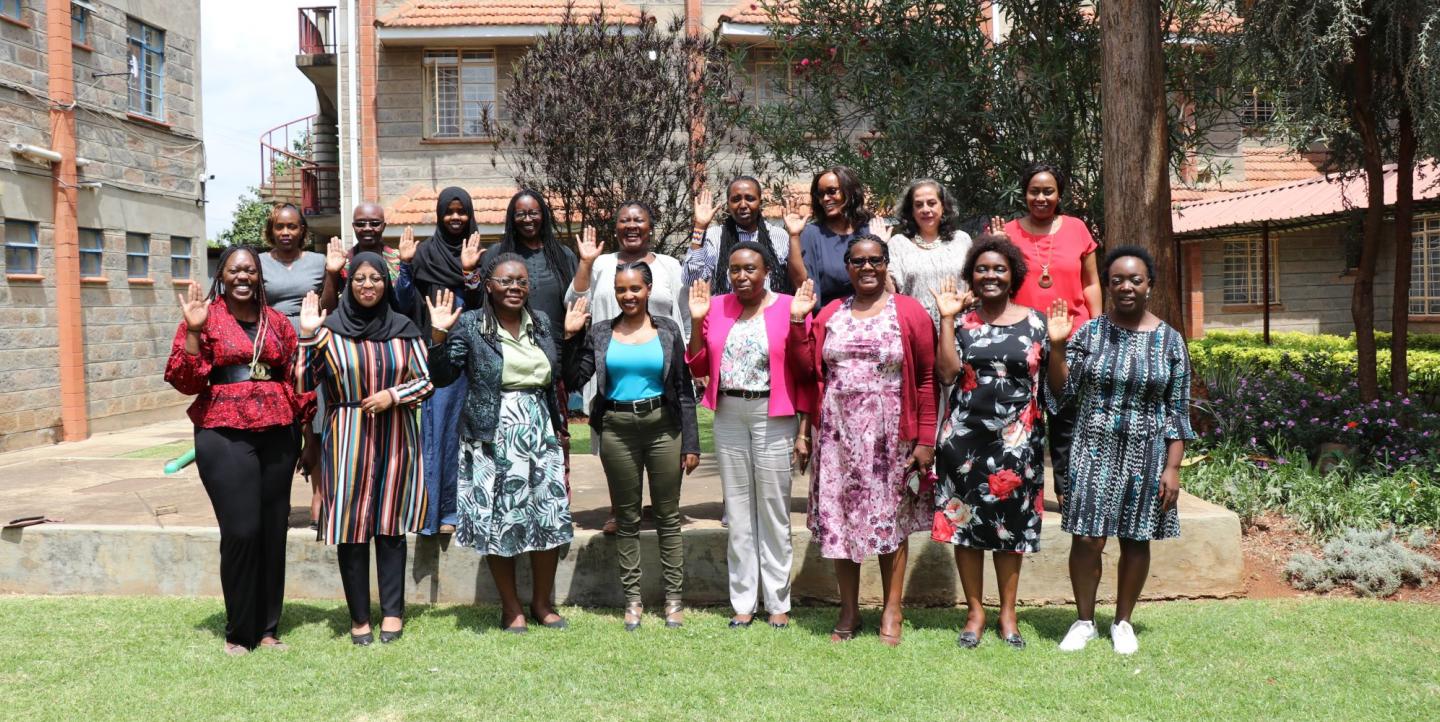When the Africa Women Journalism Project (AWJP) launched last July, it sought to give women journalists in East and West Africa the knowledge, skills and support to make sure underreported stories did not fly under the radar.
Its project director, Catherine Gicheru, a veteran journalist and ICFJ Knight Fellow, saw the impact the pandemic was having in the region. Women journalists were the first to be affected by newsroom cuts and, as a result, found themselves working either part-time or laid off.
The consequence of these redundancies was that important stories fell by the wayside — stories that women are often best placed to explore. This includes topics like sexual health, obstetric fistula (a medical condition relating to childbirth) and female genital mutilation (FGM). "A woman is not likely to speak about [these issues] with a guy," said Gicheru in a podcast with Journalism.co.uk. "There is that access. We are able to talk about these issues as we can be more empathetic and therefore more accessible to talk to."
[Read more: Fact-checkers team up with social media influencers to combat misinformation in Nigeria]
The AWJP works with women journalists in five different countries: Kenya, Ghana, Nigeria, Uganda and Tanzania. As a pilot scheme, these areas were selected as English-speaking countries with common problems. For instance, throughout the pandemic, open-air markets have had to close, leaving farmers without a source of income.
The project is grant-funded via ICFJ, and aspires to be a much wider media collective of African women journalists. The AWJP has a team of experienced journalists to act as mentors [for journalists who receive story grants, practical guidance and new skills] to take back to their newsrooms. All stories have been published on the main AWJP website.
"We are hoping to skill them up and help them grow within the profession in their newsrooms, and also help bring about innovations in the newsroom," said Gicheru. "The main focus is looking at new ways of reporting issues that are not being reported, and underreported issues that involve women and other marginalized communities."
Mentorship has so far proved crucial when trying to cover the nuances of complicated topics like FGM, and where attitudes and discussions vary across countries. It has also helped when it has been necessary to venture into the field. Experienced journalists have been able to advise on how to interview professionally and safely during the pandemic.
[Read more: Key takeaways for improving the representation of women in the news]
"When you approach your subject, how do you explain why you are wearing masks so that you don't throw them off or make them feel you're afraid of catching it from them?" said Gicheru. "Just tell them you are being very careful and you've met loads of people today. Say that you are protecting them from you because you might be the carrier."
The coronavirus pandemic has not been easy for the news industry in the region. But Gicheru finds some silver lining because of how women journalists have responded.
"A lot of the women are the ones who have found new ways of using new media or using the digital space [to] continue writing and podcasting. They may have lost their jobs, but they haven't stopped trying to see how they can amplify their voices in those spaces," she said.
"The other thing it has done is it has pushed newsrooms to think really seriously about how to make themselves sustainable and think about new ways of monetizing their content. That was a conversation that was happening but not with the urgency that I'm seeing now."
This article was originally published by Journalism.co.uk. It was republished on IJNet with permission.
Catherine Gicheru is an ICFJ Knight Fellow who focuses on innovative storytelling, investigative journalism, fact-checking and cross-border reporting on underreported issues. She is based in Nairobi, Kenya.
Main image: Director Catherine Gicheru and Kenyan AWJP women journalists meet on International Women’s Day to discuss how to address sexual harassment in the media. Provided by Naima Mungai, AWJP program manager.

